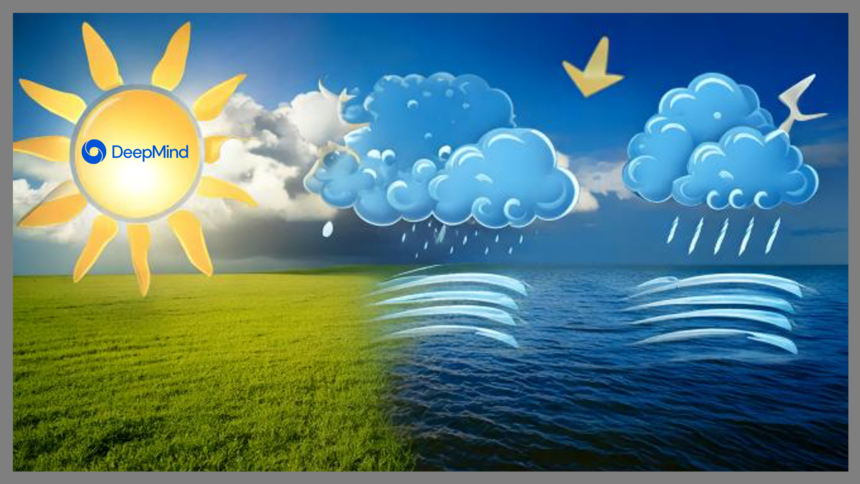In the world of weather forecasting, Google DeepMind is making waves with its new AI-powered system, GenCast. After years of relying on traditional atmospheric models, DeepMind introduces a fresh approach that’s outpacing the competition. By blending AI and atmospheric science, they’re rewriting the rulebook on forecasting, making predictions faster, cheaper, and more accurate. This breakthrough could change how we predict the weather, and not just for today but for years to come.
What’s Happening & Why This Matters
DeepMind’s GenCast system combines diffusion models — the same type used in generative AI—with traditional weather forecasting techniques. This hybrid model allows the AI to predict weather patterns with greater speed and precision than ever before. Unlike traditional models that require heavy computational resources, GenCast cuts down on costs while maintaining high resolution. It uses the current state of the atmosphere and historical data to predict weather conditions, evolving from “noise” into realistic predictions.
By using ensemble forecasting, a technique that runs multiple simulations to measure uncertainty, GenCast gives a more accurate picture of the weather. For example, the model can predict weather up to 15 days ahead, running on Google’s tensor processing systems in just 8 minutes. Compare that to the lengthy computations required by older methods, and you can see why GenCast is a game-changer .
Performance: GenCast vs. Traditional Models
DeepMind’s GenCast model has shown impressive results when compared to the European Centre for Medium-Range Weather Forecasts (ECMWF), which is considered one of the best in the world. In 97% of tests, GenCast outperformed ECMWF in predicting weather, including extreme conditions like high and low temperatures, and even the path of tropical cyclones. For the first four days of cyclone forecasting, GenCast proved to be significantly more accurate .
One standout test involved forecasting wind power output by predicting wind speeds at 10 meters above the surface. GenCast’s predictions were 20% more accurate than ECMWF’s in the first two days, a crucial difference for the renewable energy sector. As wind energy becomes more vital, this level of precision in forecasting could help maximize energy production from wind turbines .

Improvements, Risks
The ability to forecast weather with both high resolution and speed is important for many industries, from agriculture to energy. Accurate predictions allow farmers to adjust planting schedules, while wind energy operators can optimize turbine performance. The low computational cost also opens the door for individual researchers and smaller institutions to run complex simulations, democratizing access to high-quality forecasts.
Moreover, the GenCast model’s superior performance in predicting extreme weather events shows its potential in disaster preparedness. As climate change intensifies, the ability to predict and prepare for extreme weather will become increasingly important .
TF Summary: What’s Next?
The rise of AI in weather forecasting is an emerging dynamic for meteorology. As GenCast improves its algorithms, TF can expect more accurate, faster, and cost-effective weather predictions. With applications in everything from energy to disaster management, this AI-powered forecasting advancement can transform how people respond to weather patterns and events.
The integration of AI with traditional weather models may well become standard. As DeepMind fine-tunes GenCast, we could see a future where weather forecasting is more reliable than ever.
— Text-to-Speech (TTS) provided by gspeech


